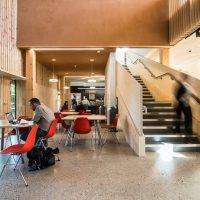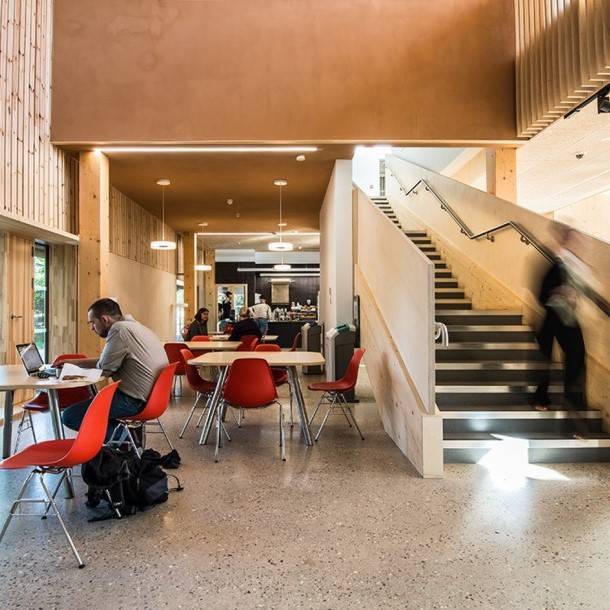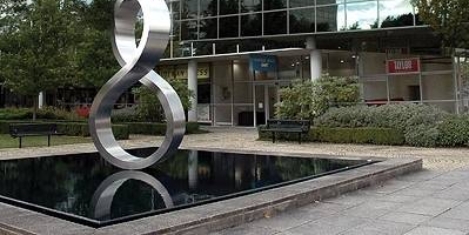October 6, 2016
Gallery: BCO awards UK’s best workplace to university in Norwich 0
 Norwich’s The Enterprise Centre at the University of East Anglia has been named as the Best of the Best workplace at the British Council for Offices’ (BCO) annual National Awards in London. The office was also recognised as the Best Corporate Workplace in the UK, joining a list of six other award winners recognised for excellence in office space. The BCO’s National Awards programme recognises top quality office design and functionality and sets the standard for excellence across the office sector in the UK. The University of East Anglia’s The Enterprise Centre was praised by judges for showcasing low carbon and sustainable design at its best. Judges commented that the workplace offered a wide range of highly flexible accommodation with incubation and collaborative spaces for new and developing businesses in a building equipped to deliver for the 21st century.
Norwich’s The Enterprise Centre at the University of East Anglia has been named as the Best of the Best workplace at the British Council for Offices’ (BCO) annual National Awards in London. The office was also recognised as the Best Corporate Workplace in the UK, joining a list of six other award winners recognised for excellence in office space. The BCO’s National Awards programme recognises top quality office design and functionality and sets the standard for excellence across the office sector in the UK. The University of East Anglia’s The Enterprise Centre was praised by judges for showcasing low carbon and sustainable design at its best. Judges commented that the workplace offered a wide range of highly flexible accommodation with incubation and collaborative spaces for new and developing businesses in a building equipped to deliver for the 21st century.


































October 7, 2016
Are we seeing the workification of home or the homification of work? 0
by Anna King • Comment, Flexible working, Workplace design
(more…)